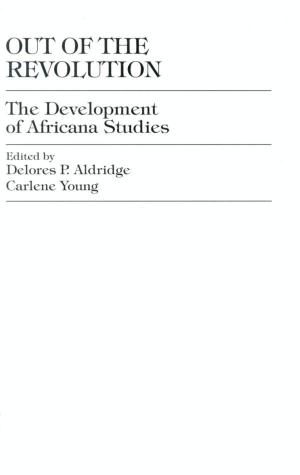Jewish Feminism
Framed and Reframed
Nonfiction, Social & Cultural Studies, Social Science, Gender Studies, Feminism & Feminist Theory, Religion & Spirituality, Judaism| Author: | Esther Fuchs | ISBN: | 9781498566506 |
| Publisher: | Lexington Books | Publication: | March 12, 2018 |
| Imprint: | Lexington Books | Language: | English |
| Author: | Esther Fuchs |
| ISBN: | 9781498566506 |
| Publisher: | Lexington Books |
| Publication: | March 12, 2018 |
| Imprint: | Lexington Books |
| Language: | English |
In the last three decades, hundreds of books and essays have been published on women, gender, and Jewish Studies. This burgeoning scholarship has not been adequately theorized, contextualized, or historicized. This book argues that Jewish feminist studies is currently constrained by multiple frames of reference that require re-examination, a self-critical awareness, and a serious reflective inquiry into the models, paradigms, and assumptions that inform, shape, and define this area of academic interest. This book is the first critical analysis of Jewish feminist scholarship, tracing it from its tentative beginnings in the late 1970s to contemporary academic articulations of its disciplinary projects. It focuses on the assumptions, evasions, omissions, inconsistencies, and gaps in this scholarship, and notably the absence of debate, contestation, and interrogation of authoritative articulations of its presumed goals, investments, and priorities. The book teases out implicit thinking about mapping, direction, and orientation from introductions to leading anthologies and engages critically with the few explicitly theoretical works on Jewish feminist studies, contesting ideas that have become hegemonic in some areas, and interrogating the limitations these theories impose on future trajectories in Jewish feminist studies. Each chapter outlines the theoretical assumptions that inform salient publications in the field, providing a close reading of scholarly texts that justify certain practices. The book is divided into four chapters, each of which focuses on a different frame of reference. It outlines the way in which the various frames that have so far been imposed on Jewish feminism, the ethnocentric, liberal, personal, masculinist, and essentialist, have arrested its theoretical elaboration and articulation. The book includes both interdisciplinary anthologies on gender and Jewish identity and disciplinary publications in history, literature, philosophy, cultural studies, and Holocaust studies.
In the last three decades, hundreds of books and essays have been published on women, gender, and Jewish Studies. This burgeoning scholarship has not been adequately theorized, contextualized, or historicized. This book argues that Jewish feminist studies is currently constrained by multiple frames of reference that require re-examination, a self-critical awareness, and a serious reflective inquiry into the models, paradigms, and assumptions that inform, shape, and define this area of academic interest. This book is the first critical analysis of Jewish feminist scholarship, tracing it from its tentative beginnings in the late 1970s to contemporary academic articulations of its disciplinary projects. It focuses on the assumptions, evasions, omissions, inconsistencies, and gaps in this scholarship, and notably the absence of debate, contestation, and interrogation of authoritative articulations of its presumed goals, investments, and priorities. The book teases out implicit thinking about mapping, direction, and orientation from introductions to leading anthologies and engages critically with the few explicitly theoretical works on Jewish feminist studies, contesting ideas that have become hegemonic in some areas, and interrogating the limitations these theories impose on future trajectories in Jewish feminist studies. Each chapter outlines the theoretical assumptions that inform salient publications in the field, providing a close reading of scholarly texts that justify certain practices. The book is divided into four chapters, each of which focuses on a different frame of reference. It outlines the way in which the various frames that have so far been imposed on Jewish feminism, the ethnocentric, liberal, personal, masculinist, and essentialist, have arrested its theoretical elaboration and articulation. The book includes both interdisciplinary anthologies on gender and Jewish identity and disciplinary publications in history, literature, philosophy, cultural studies, and Holocaust studies.















